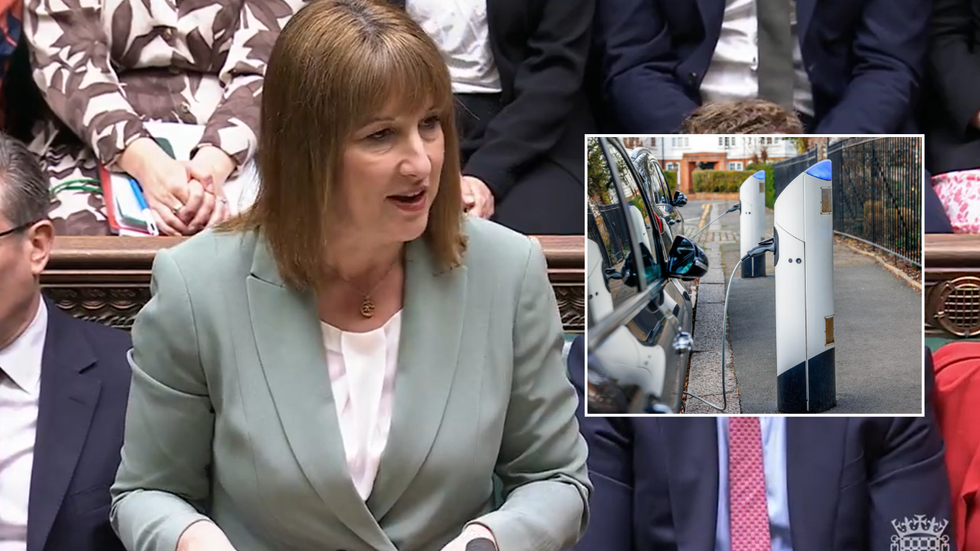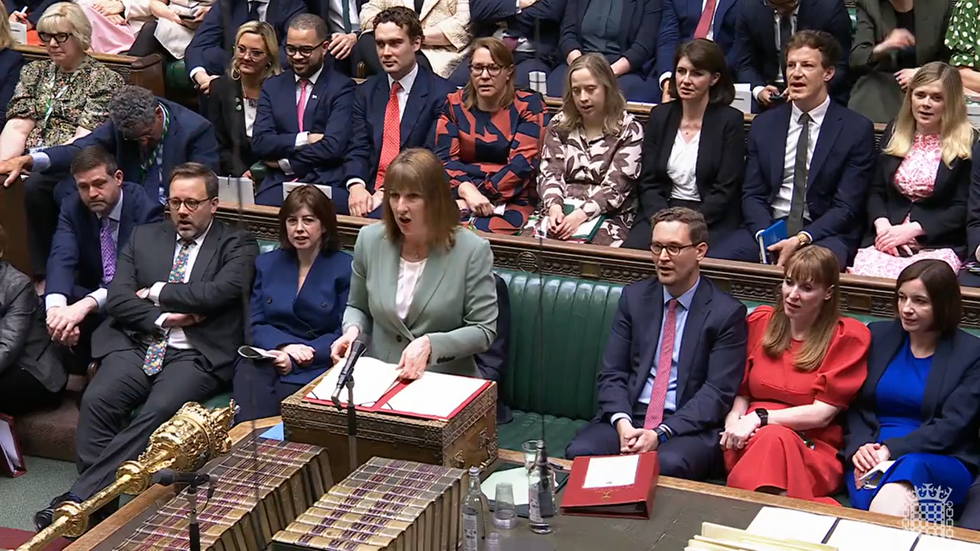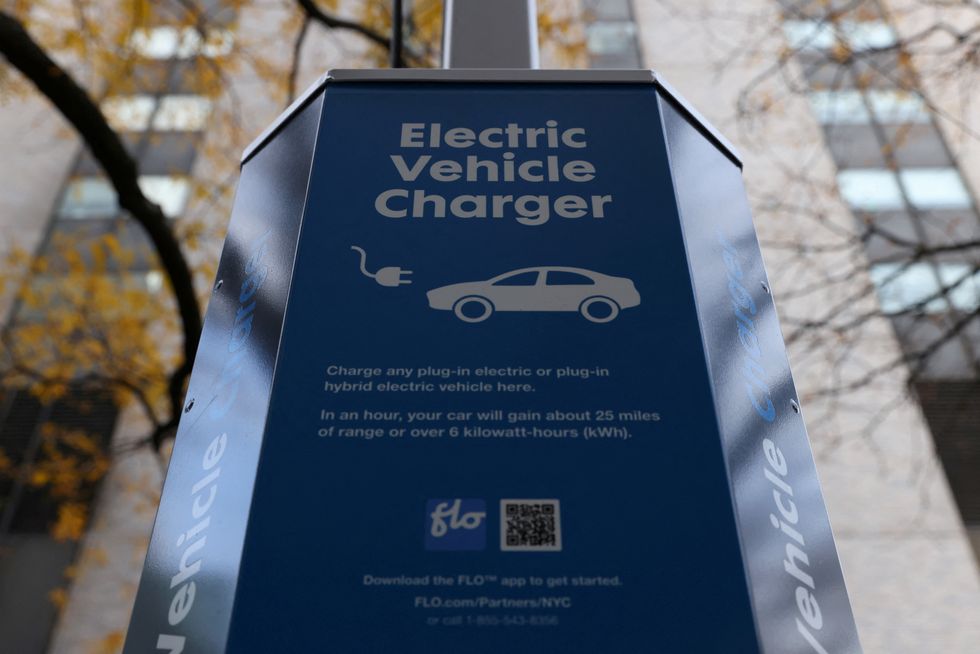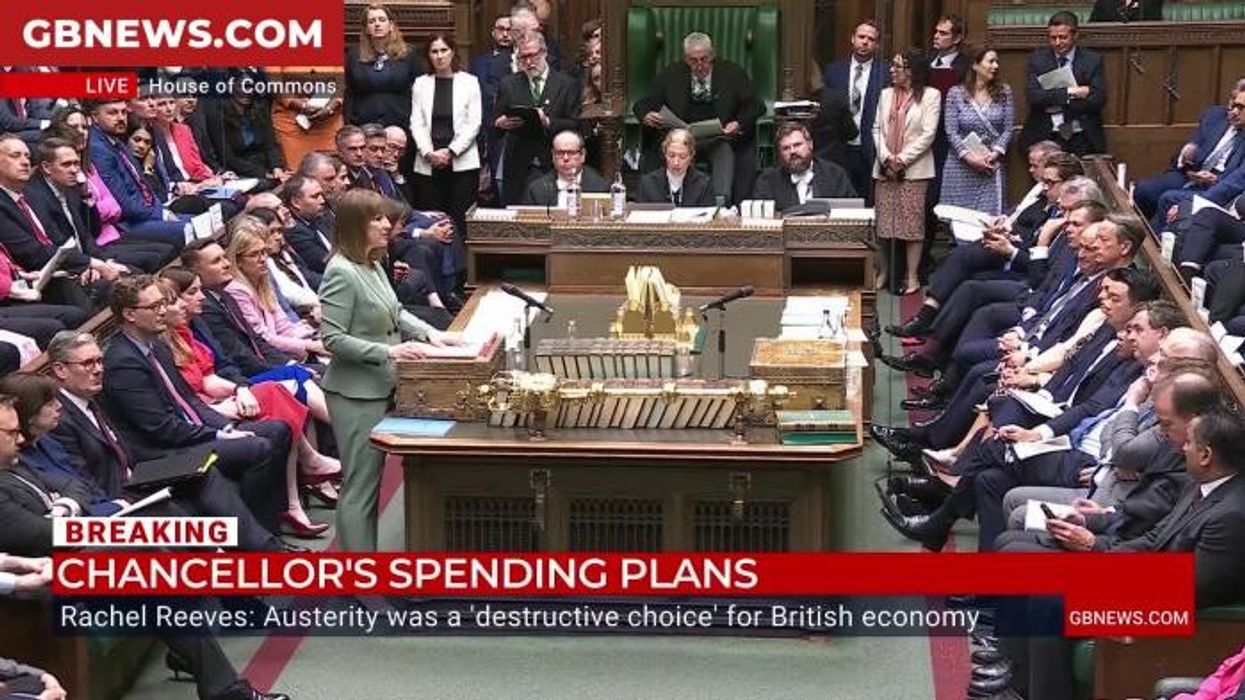Rachel Reeves turns her back on petrol and diesel cars as billions invested into electric vehicles

The Chancellor has allocated £1.4billion to boost electric vehicle uptake in the UK
Don't Miss
Most Read
Chancellor Rachel Reeves has unveiled a major funding package for electric vehicles as part of the Government's Spending Review, marking a significant boost away from petrol and diesel cars.
The investment announced today included £1.4billion to support the continued uptake of electric vehicles, including vans and Heavy Goods Vehicles, alongside £400million for the further rollout of charging infrastructure across the country.
Speaking in the House of Commons, Reeves said the funding would build on the almost 80,000 public charging devices already available throughout the UK.
The announcement forms part of a broader £2.6billion commitment to decarbonise transport, which the Chancellor described as "the right choice for bills, the right choice for jobs, and the right choice for growth."
Do you have a story you'd like to share? Get in touch by emailing motoring@gbnews.uk

The Chancellor has allocated £1.4billion of investments into electric vehicles
|PARLIAMENT TV/GETTY
The funding announcement will mean that drivers will benefit from a significant expansion of charging infrastructure, with the Government's investment supporting the rollout of more public charging points.
Reeves emphasised the Government's commitment to clean energy, stating: "On this side of the House, we understand that energy security is national security."
In the official Spending Review document, it detailed how it hoped that achieving clean power by 2030 would deliver energy security and protect bill payers, by reducing exposure to volatile international fossil fuel markets.
The document read: "At the same time, as the UK accelerates to net zero, the government will support sectors across the economy to drive economic growth. This will create hundreds of thousands of good jobs, driving investment and innovation across all parts of the UK. The clean energy industry is one of the key growth-driving sectors identified in the Industrial Strategy."
For everyday motorists, the investment hopes to address a key barrier to EV adoption by improving the charging infrastructure, though industry leaders continue to press for additional measures, including tax cuts and VAT reductions.
The electric vehicle industry has welcomed the funding announcement, with ChargeUK CEO Vicky Read praising the Government's commitment to the transition.
But she warned that decarbonisation of transport will only be possible if the "Government and the private sector work effectively together".
She also urged the Government to take further action, calling for VAT on public charging to be cut to five per cent, addressing rising standing charges, and extending the Renewable Transport Fuel Obligation to include EV charging.
LATEST DEVELOPMENTS:

The Chancellor delivered her Spending Review in the House of Commons
|PARLIAMENT TV
Meanwhile, the National Franchised Dealers Association has responded with cautious optimism while highlighting key concerns about the funding's implementation.
NFDA Chief Executive Sue Robinson acknowledged the positive signals from the £15.6billion transport package and renewed focus on regional connectivity, noting benefits for dealer networks and supply chains across the North and Midlands.
She emphasised that the Government still needs to incentivise consumers to purchase new vehicles by improving charging infrastructure whilst addressing EV tax hikes.
The association did welcome the commitment to apprenticeships, with £1.2billion bringing much-needed funding for young people to enter training and upskilling programmes, addressing 16,000 job vacancies in the automotive sector.

The Spending Review saw billions invested in electric vehicles
| REUTERSThe Spending Review also introduced £616million for Active Travel England to build and maintain walking and cycling infrastructure, which includes funding for Low Traffic Neighbourhoods.
Meanwhile, the Intelligent Transport Systems UK Chief Executive Max Sugarman praised today's investment in the UK's transport infrastructure, which included £24billion for motorways and roads, £750billion for bus services, £2.3billion for the Local Transport Grant, as well as £616million to maintain and improve active travel infrastructure.
Sugarman added: "ITS UK will be looking over the coming weeks to further understand the role of technology, data and digital services within these funding settlements. Crucially, this will require not just capital investment, but also the ability of transport authorities to procure 'software as a service' tools, using operational expenditure to enable the use of new technology to the fullest.
"Through technology, we can ensure this investment is maximised, and that the intelligent transport sector plays its part in delivering a connected, seamless, safe, green and efficient network."











